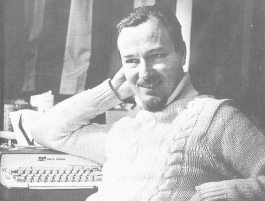A Quote by Christopher Lloyd
I've always been fascinated by real scientists - Albert Einstein, Isaac Newton, and so many others - how they've come up with solutions to very complicated problems that nobody else can seem to figure out.
Related Quotes
It's happened many times before. Usually it results in an exceptional and gifted human. Some of the greatest figures in Earth's history were actually the product of humans and the Loric, including Buddha, Aristotle, Julius Ceasar, Alexander the Great, Genghis Khan, Leonardo da Vinci, Isaac Newton, Thomas Jefferson, and Albert Einstein... Aprodite, Apollo, Hermes, and Zeus were all real, and had one Loric parent
We have to start at ground zero and ask what it means to have a real connection with God and what it means to pray. We have to recast our whole understanding of God. We live on the other side of Copernicus, Kepler, Galileo, Isaac Newton, Charles Darwin, Sigmund Freud, Albert Einstein, Steven Hawking, a whole group of people who have recast the way we think about reality.
I still can't figure out what inspired me to do physics. But since I was nine or ten years old, I wanted to be like [Albert] Einstein. He was my hero. I knew no physicists. I knew no scientists. I had nobody around me. And I went to a convent that didn't even have higher mathematics and physics. I taught myself these subjects in order to get into university.
I believe in logic, the sequence of cause and effect, and in science its only begotten son our law, which was conceived by the ancient Greeks, thrived under Isaac Newton, suffered under Albert Einstein...
That fragment of a 'creed for materialism' which a friend in college had once shown him rose through Donald's confused mind.
Even Johannes Kepler, Isaac Newton, Charles Darwin, Gregor Mendel, and Albert Einstein made serious mistakes. But the scientific enterprise arranges things so that teamwork prevails: What one of us, even the most brilliant among us, misses, another of us, even someone much less celebrated and capable, may detect and rectify.
Scientists are people of very dissimilar temperaments doing different things in very different ways. Among scientists are collectors, classifiers and compulsive tidiers-up; many are detectives by temperament and many are explorers; some are artists and others artisans. There are poet-scientists and philosopher-scientists and even a few mystics.
I used to rent a house in Princeton, New Jersey, and whenever people came to visit me, I would drive them past Albert Einstein's house, which is the most ordinary house in Princeton - a house, let me assure you, that now a salesman wouldn't live in. I'd always say, "That was Albert Einstein's house." And they'd say, "What do you mean? Why would Albert Einstein live in a little house like that?" And I'd always say to people, "Because he didn't care!"
There is a reward structure in science that is very interesting: Our highest honors go to those who disprove the findings of the most revered among us. So Einstein is revered not just because he made so many fundamental contributions to science, but because he found an imperfection in the fundamental contribution of Isaac Newton.
There's this very interesting and complicated connection between our environment and our genes and the traits that come out of the environment plus genes. And there's huge potential. I mean we see amazing abilities. Marie Curie, Albert Einstein. All sorts of arts, and literature and so forth. These are not typical traits of everybody on earth.
Nothing is so much coveted by a young man as the reputation of being a genius; and many seem to feel that the want of patience for laborious application and deep research is such a mark of genius as cannot be mistaken: while a real genius, like Sir Isaac Newton, with great modesty says, that the great and only difference between his mind and the minds of others consisted solely in his having more patience.


































